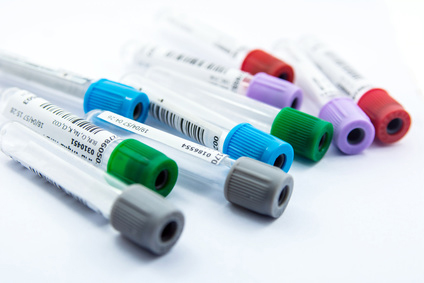A PRECURSOR TREATMENT
to combat autoimmune diseases
Autoimmune diseases
 Autoimmune diseases are pathologies resulting from abnormal or out-of-control activations of the immune system, activations due to dysfunctions or dysregulations.
Autoimmune diseases are pathologies resulting from abnormal or out-of-control activations of the immune system, activations due to dysfunctions or dysregulations.
They target the patient himself by attacking his organs or tissues as if they were foreign bodies. The symptoms are variable and the multiple causes are still poorly understood. We therefore speak of multifactorial diseases. Genetic factors, but also epi-genetic factors are nowadays part of the research tracks.
Epidemiology and markets
 To date, there are more than 150 autoimmune diseases. They affect more than 6% of the global population. It is the third leading cause of morbidity after cancer and cardiovascular accidents.
To date, there are more than 150 autoimmune diseases. They affect more than 6% of the global population. It is the third leading cause of morbidity after cancer and cardiovascular accidents.
Some autoimmune diseases are rare, affecting less than one case per 10,000 population. But taken as a whole, they are common and their prevalence is constantly increasing.
Autoimmune diseases are, to this day, still without clinical response in most diseases. They require extensive medical care and represent a large part of today's public health problems.
The autoimmune disease market therefore represents a turnover of several billion euros.
Patients and specialists are waiting for new therapeutic strategies, which gives great opportunities for the development of a new medication - such as the one envisaged by MEDSENIC - which corresponds to unmet medical needs, as well as a considerable international market.
Current Treatments
 Most existing drugs for the treatment of autoimmune diseases seek to decrease abnormal immune activity.
Most existing drugs for the treatment of autoimmune diseases seek to decrease abnormal immune activity.
These are therapies with generalized action (immunosuppressive therapies) and adverse side effects, or therapies that are very specifically targeted to molecular targets (targeted monoclonal antibodies). The latter are often characterized by significant efficacy on one component of the immune system, but with devastating effects and unexpected consequences on other physiological functions, which were normal before treatment.
Future developments
 Arsenic trioxide has the unique property of increasing cellular oxidative stress to the point where it induces cell death (enhanced apoptosis).
Arsenic trioxide has the unique property of increasing cellular oxidative stress to the point where it induces cell death (enhanced apoptosis).
In other words, it has a specific, long-term or even permanent immunosuppressive effect, without affecting the normal components of the immune system and with minimal negative side effects. It probably acts at a very fundamental level and upstream of the immune cascade, as in animal models a correction of all parameters signalling the autoimmune cascade is observed.
Programmes are currently underway to validate proof of concept in clinical trials. MEDSENIC has already provided, through its phase 2a clinical trial on the treatment of severe systemic lupus erythematosus, a first proof of concept which makes it possible to establish that the treatment has minimal toxicity for significant efficacy at least in a first case of autoimmune disease, which will lead to extending the application of this treatment to other autoimmune diseases.
The challenge is to define the amounts and duration of treatment needed to eliminate all pathogenic cells, without affecting the normal components of the immune system.
Arsenic trioxide should prove to be a breakthrough medication and an effective first-in-class treatment for more than one autoimmune disease.
